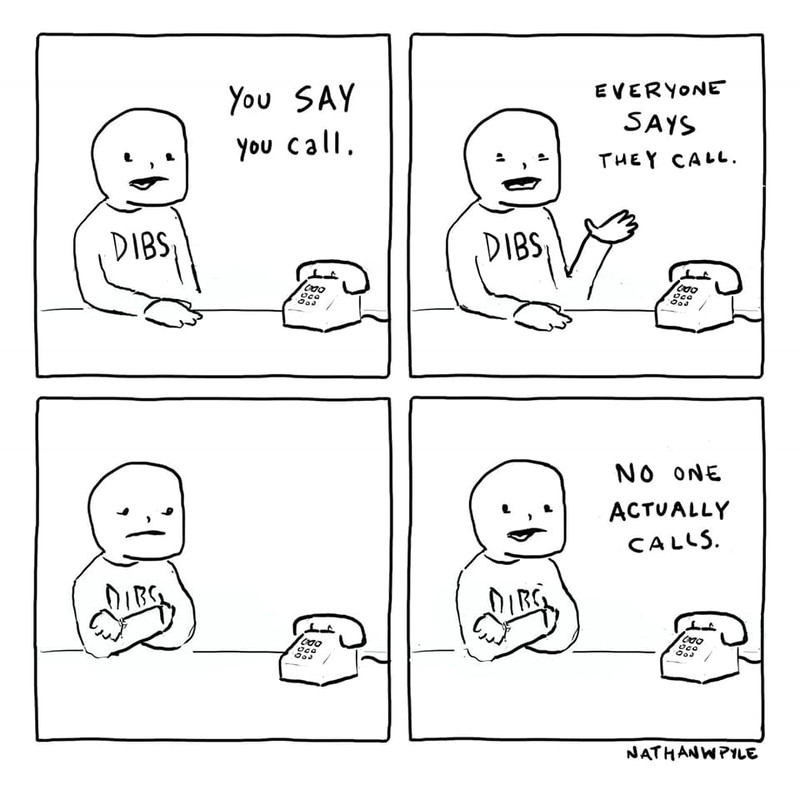General Discussion
Related: Editorials & Other Articles, Issue Forums, Alliance Forums, Region ForumsThe Joys of Etymology
I love words. All words in all languages.
This morning, my wife said, "I call dibs on the last caramel." "Dibs."
We've all said that, and we all know what it means, but I suddenly became curious about the origin of that word.
Now, you're probably wondering about it, too.
Google to the rescue:
https://mashedradish.com/2017/02/27/etymology-of-the-day-dibs/
empedocles
(15,751 posts)on the table in the living room. Took latin in high school. Some real surprises. Phrase still in very common use. 7%
A favorite:
''ORIGIN OF ‘TO CUT OFF ONE’S NOSE TO SPITE ONE’S FACE’
Pascal TréguerFrench/English, literature, symbolismsdictionaries, human body, Latin, phrases
title page of The deceyte of women, to the instruction and ensample of all men yonge and olde, newly corrected (circa 1557)
title page of The deceyte of women, to the instruction and ensample of all men yonge and olde, newly corrected (1557?): Aristotle is being ridden like an ass by the courtesan Phyllis.—image: Early Modern Drama Blog
The phrase to cut off one’s nose to spite one’s face means to carry out a vengeful action that hurts oneself more than another, usually with the implication that the person who carries out this action knows its likely consequences beforehand.
It was first defined by the English antiquary and lexicographer Francis Grose (1731-91) in A Classical Dictionary of the Vulgar Tongue (1788 edition):
He cut off his nose to be revenged of his face; said of one who, to be revenged on his neighbour, has materially injured himself.
But the image is found as early as around 1557 in The deceyte of women, to the instruction and ensample of all men yonge and olde, newly corrected:
He that byteth hys nose of, shameth hys fate [misprint for face], and so it is wyth me, for yf I shame my wife: I shame my selfe.
The metaphor had been used in medieval Latin. In Conquestio de dilatione vie Ierosolimitane, composed between 1188 and 1191, Pierre de Blois (Petrus Blesensis in Latin), French diplomat, cleric, theologian and author (born at Blois about 1130 – died about 1212), quoted a proverb:
Proverbium vulgare est : “male ulciscitur dedecus sibi illatum qui amputat nasum suum” (“he who cuts off his nose takes poor revenge for a shame inflicted on him”).''
https://wordhistories.net/2017/08/23/cut-nose-spite-face/
MineralMan
(146,248 posts)the Compact Oxford English Dictionary - the version that comes with a magnifying glass so you can read the tiny type. I don't use it any longer, since we now can look up everything instantly on Google.
Words and language in general have always fascinated me. It's good to know there are others with the same obsession.
panader0
(25,816 posts)I took a class in college once titled "Origins of the English Language". The teacher was great
and really stirred my interest in finding out where words came from. English borrowed from many
other languages, and that continues today. I have a 350,000 word dictionary that has a great
etymology feature.
MineralMan
(146,248 posts)I started out as an Electronics Engineering major in 1963, dropped out in my sophomore year and ended up in the USAF, which sent me to a total immersion, yearlong Russian language program at Syracuse University. After getting out of the service, I returned to college, but chose English as major, just because that was the only program open to me on short notice.
It was a perfect match for me. I took linguistics classes, as well, which also suited me. I ended up with a career as a writer for magazines, and am still writing in retirement now.
Words. Gotta love 'em.
lapucelle
(18,187 posts)empedocles
(15,751 posts)Merriam used to be good for etymology - Latin, early English, etc.
Igel
(35,270 posts)Often it draws on more recent information. Sometimes it gets things horribly wrong, but not very often. And unlike wikipedia itself, it still has a bit of a spine and will point out when there's a claim that's popular and trendy but simply incorrect--neither yielding to it nor simply allowing the misinformation to stand.
https://en.wiktionary.org/wiki/dibs
lapucelle
(18,187 posts)Thanks.
![]()
lagomorph777
(30,613 posts)It makes the hair on the back of my neck stand up. Our linguistic heritage goes back incredibly far. There are even indications of something resembling a multi-continent written language, going back tens of thousands of years.
lapucelle
(18,187 posts)
Behind the Aegis
(53,919 posts)As someone who loves languages and is a passable polyglot, I would love to have that as a framed poster!
lapucelle
(18,187 posts)Google "language family tree graphics" and go to "images". There are several.
Behind the Aegis
(53,919 posts)Looks like I will be getting some new wall art.
MineralMan
(146,248 posts)TxGuitar
(4,175 posts)that sadly I can't find now. It was 4 panels. A guy was sitting at a table next to a phone, with the word Dibs on his tshirt, and he says (across the 3 panels) "Everybody says they call dibs. But you never call do you? Do you?" Probably funnier with the visual so if I find it I'll post it here.
(what a lame post... ![]() )
)
TxGuitar
(4,175 posts)[url=https://postimg.cc/7ChJKQR7][img] [/img][/url]
[/img][/url]
nuxvomica
(12,408 posts)These are words that linguists say have common roots in all languages, even unrelated languages. It's as though the human brain is wired for certain words, or that language may have begun within a single prehistoric community. And some, like "spit", may just be onomatopoeia. I tend to think the former because babies say some of these words. The list includes "bark", "ash", "momma", "not".
More discussion here:
https://www.washingtonpost.com/national/health-science/linguists-identify-15000-year-old-ultraconserved-words/2013/05/06/a02e3a14-b427-11e2-9a98-4be1688d7d84_story.html
In my fiction writing, I try to use some of the specific words like "bark" or "worm" whenever the opportunity arises because I suspect they resonate deeply with readers. But I could be wrong.